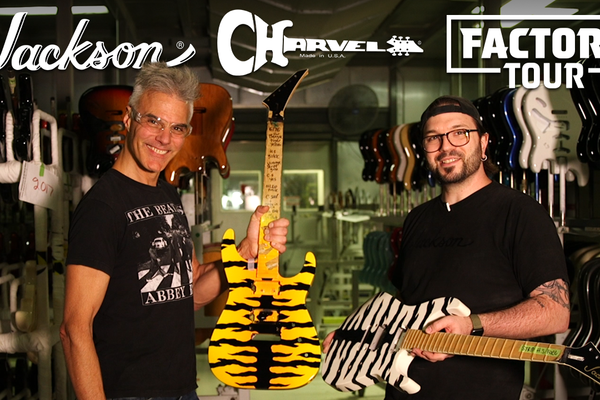
What science says about the likelihood of you hitting guitar gold.
Years ago I read an interview where a famous shred guitarist recalled fans complimenting him in a way that implied he had virtuoso genes while they’d been gypped with lackluster DNA. In a nutshell, he said, “Look, I’m not a genius. If you wanna be good, turn off the TV and hit the woodshed.”
Today that lesson has been learned all too well: Every hour it seems we’re bombarded by GoPro videos chronicling players winning gold, silver, and bronze in their own personal fretboard Olympics.
Yay for humanity.
Still, no single person is to blame for the obsession with young, photogenic guitarists playing fast, complex lines along to cheesy, soulless backing tracks. But rather than dissect this depressing socio-techno-cultural phenomenon, let’s look at the instincts driving it: Even those of us who loathe fleet-fingered, wannabe-viral feats must admit the primal ambitions and insecurities driving YouTube shred heads lurk in our own hearts. We all want to make music that’s unique and special—we just have different definitions, methods, and measuring approaches.
That said, the Zappa-esque route prescribed by that shredder seems to be corroborated by cognitive scientist Scott Barry Kaufman’s recent Scientific American article “Why Creativity Is a Numbers Game.” He references research by UC-Davis Distinguished Professor of Psychology Dean Keith Simonton, who points out that many of history’s most revered geniuses—Thomas Edison and William Shakespeare, for example—also came up with a lot of not-so-genius stuff. But because they were always cranking out new ideas, the likelihood of hitting a home run was higher. Edison, inventor of the light bulb, had 1,093 patents, but only a handful were for truly remarkable things. Shakespeare, widely regarded as the greatest English-language writer, wrote 38 plays, 154 sonnets, and reams of poetry—but only a few plays written in his mid to late 30s are heralded today.
Beyond the apparent value of incessant woodshedding, a recent write-up in The Atlantic [“The Quantified Welp,” February 25, 2016] cites a new study from Journal of Consumer Research, as well as experiments at Duke University, that suggest the act of measuring an activity that we’re engaged in with a specific goal in mind can increase how much we enjoy doing it.
Clearly we should all set quotas for hours spent playing, numbers of scales played, and BPMs clocked on metronomes, right? After all, it’ll increase the fun factor and optimize our chances for success!
Let’s get real. Sure, it’s a no-brainer that you should adequately prepare for a gig. But knowing when you’re ready is more about listening and observing than hitting a numerical goal. Approaching music as a contest of statistical probabilities isn’t just ridiculous, it’s the root evil of a lot of crap music being doled out to us today.
The paradox is that many of us have this mindset without even realizing it. We don’t think, “I’m going to practice [or jam or write songs] more because science and statistics prove I’ll have a better chance of striking melodic gold.” It’s more innocuous—“If I just keep woodshedding, I’ll be ‘better.’” And “better” is good, right?
But Simonton’s larger conclusion was not that greatness comes by sheer dint of mind-numbing repetition. As Kaufman puts it, “the secret to creative greatness appears to be doing things differently—even when that means failing … creative geniuses simultaneously immerse themselves in many diverse ideas and projects.” We should be approaching our music differently from both other people and from project to project.
Further, while the Duke study found that tracking data can bolster enjoyment of activities such as exercise (where surpassing past performance instills a sense of accomplishment), professor Jordan Etkin’s main takeaway was that measuring any activity typically undertaken for pleasure tends to “undermine the inherent fun or enjoyment.”
So the question becomes, is it your goal to create great music or show off? Is it important that your music come from a place of joy? And if so, what brings you joy—moving a human being, or flaunting chops? Further, what will bring your audience joy—fretboard gymnastics or exposing a place in your/their heart that no one has seen before?

